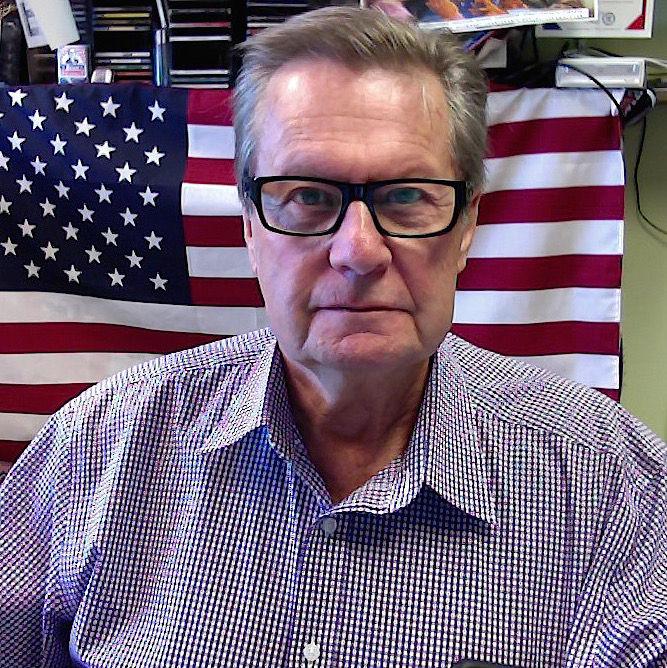Guest Column: Notes on The Third Republican Debate
Steffen Schmidt
October 28, 2015
The much-anticipated third Republican debate took place at the University of Colorado-Boulder on Wednesday night. Before the debate a nasty controversy had already erupted around why the debate organizers blocked off an area for only 1,000 people in the Coors Events Center, which holds 11,000. The university with 30,000 students was given only 150 tickets. Students and faculty were furious at CNBC and the arrogance of the media in dissing the university left a bad taste in the mouth of Boulder.
Four Republicans appeared early in what was called the “undercard” debate, comprised of the low-polling candidates Rick Santorum, Bobby Jindal, George Pataki, and Lindsey Graham. It is incomprehensible to me why these four should even be included. They are polling nowhere and most political campaign experts say they should just be ignored.
The main debate was to be about economic issues. It was the first time that “mainstream” Republicans went more directly at the frontrunners. Donald Trump and Ben Carson have stolen the headlines and the media has been a strong enabler of this unusual surge because they have been so good for ratings. The problem is John Kasich came across as a whiner, sour, and an angry guy.
Trump, for the first time, seemed not as self confident, having fallen to second place in several Iowa caucus polls. However, his closing statement about negotiating a two hour debate was the best received, to huge applause.
Dr. Carson has held steady as the quiet, serene front runner in both the Iowa polls and now national polls. Carson has a solid base and his signature “quiet” approach to campaigning. He evaded the question about his connection to a supplement company that has been fined, and that didn’t sit well. His plan for “optional” Medicare was ridiculous, since it would starve Medicare and kill it.
Texas Sen. Ted Cruz was brilliant and very aggressive, he attacked the news media.
Former Florida Gov. Jeb Bush needed a huge win in this debate after a terrible week in which he whined that if he was just going to be insulted he would quit because he has other cool things he can do. Did he accomplish that? Probably not. He just did not break out from the pack.
Former Hewlett-Packard Co. CEO Carly Fiorina, a latecomer to the race, surged after a strong performance in the first GOP “undercard” vent. She then did very well attacking Trump in the second debate but practically vanished from the campaign after that, and her poll numbers tanked.
This debate was crucial for her to reestablish momentum as the only woman in the Republican field. She did not change the dynamic and needs to find a more distinctive niche in this campaign.
Florida Sen. Marco Rubio has been rising in the polls but suffered from deep criticism for missing more Senate votes than any other Senator. He’s also said he hates the Senate. He has been asked to resign his Senate seat by one of the most influential Florida newspapers, the Sun Sentinel.
On debate night these factors hung heavy over Rubio’s debate performance. Rubio did very well, was humorous and strong, told family stories and clearly won the contest between himself and Jeb Bush.
The four lowest scoring competitors really needed a victory in this debate or their fate would probably be sealed and their campaigns in deep trouble.
New Jersey Gov. Chris Christie has not been getting much traction and this debate was important for him to reclaim the position as the most aggressive and “in-your-face” candidate. Christie was more aggressive and feisty than Trump, so on this night he regained his footing as the tough guy. He hammered the news media for their trivial questions, such as fantasy sports, to great applause.
Kentucky Sen. Rand Paul has had a shocking decline in the polls and his libertarian position seems to not be connecting this season. This debate was make or break it for Paul, and he did not gain ground. His threat to filibuster the Senate budget and debt ceiling bill was ineffective.
Ohio Gov. John Kasich was very angry this week at Trump and Carson and he had to show that this anger could be directed at deflating the front runners. He complained “what’s happening to our party?’” This debate was crucial for his campaign. He made a good case for his success in Ohio.
Former Gov. Mike Huckabee, like several others, has suffered from Carson sucking away the Evangelical, faith-based voters, especially in Iowa. I do not believe that he recovered in Boulder. He needs to consider dropping out to clear the field for other Republicans who have a real chance of getting the nomination.
The main take away from this debate was that it did not, as expected, pit most of the mainstream Republicans against the two “outsiders”, Carson and Trump. However, it was like an alpha male testosterone fest with even Fiorina exuding muscular frustration against the two front runners, who dominate over 50 percent of the polls in a field of 15 candidates.
Republican leaders I spoke with before the debate told me they hoped this debate would reduce the field by at least four and hopefully by six or seven. Hopefully it accomplishes that.







